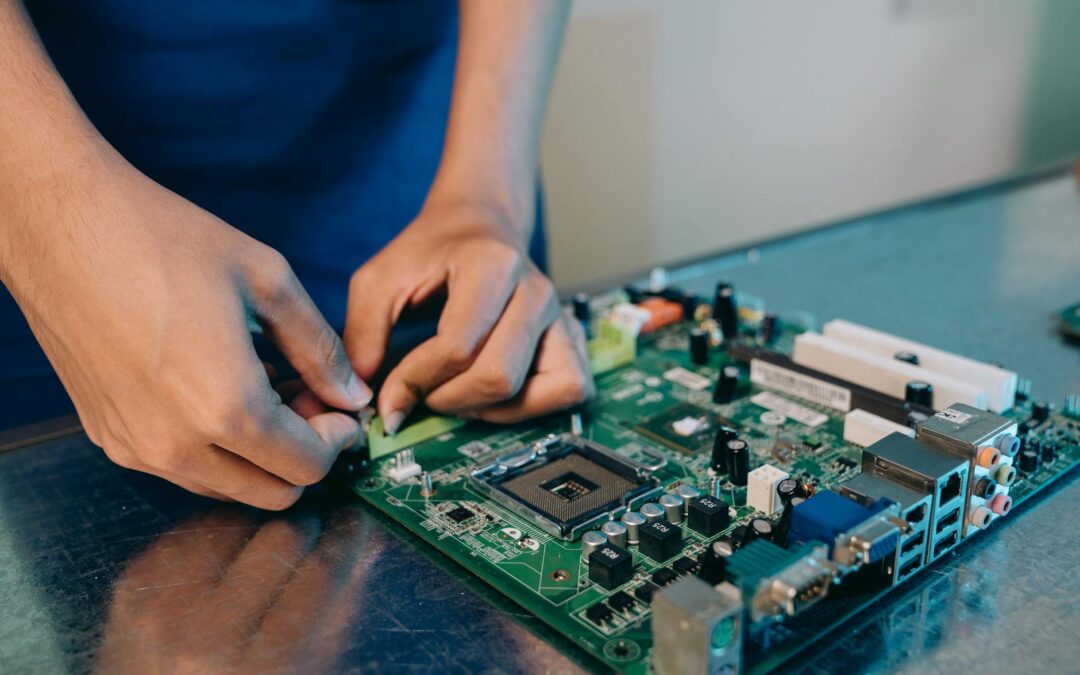Explore the fascinating history of artificial intelligence – from its humble beginnings to the cutting-edge technology of today. Discover more!
Table of Contents
Artificial Intelligence, commonly referred to as AI, stands at the forefront of technological innovation in the 21st century. But the roots of AI can be traced back to centuries past, with early concepts of machine intelligence dating as far back as ancient civilizations. In this blog post, we will take a journey through the annals of history to explore the evolution of AI and its impact on society.
Origins of AI
The concept of artificial beings with human-like intelligence has captured the imagination of scholars and philosophers throughout history. Ancient Greek myths and folklore depicted automatons created by the gods, while medieval alchemists sought to create homunculi – miniature human-like creatures – through alchemical means.
Fast forward to the 20th century, where the foundation of modern AI was laid by pioneering scientists such as Alan Turing and John McCarthy. Turing’s seminal work on computing and the famous Turing Test laid the groundwork for machine intelligence, while McCarthy coined the term “artificial intelligence” in the mid-1950s.
Milestones in AI Research
The 20th century saw significant advancements in AI research, with key milestones marking the progress of the field. In 1956, the Dartmouth Conference brought together leading researchers to explore the possibilities of AI, sparking a wave of interest and investment in the emerging technology.
Throughout the following decades, AI research focused on developing neural networks, expert systems, and natural language processing capabilities. Breakthroughs such as IBM’s Deep Blue defeating chess grandmaster Garry Kasparov in 1997 showcased the potential of AI to excel in complex cognitive tasks.
Modern Applications of AI
Today, AI has transcended theoretical concepts to become an integral part of our daily lives. From virtual assistants like Apple’s Siri and Amazon’s Alexa to self-driving cars and personalized recommendation algorithms, AI has permeated various sectors, revolutionizing industries and enhancing user experiences.
In healthcare, AI-powered technologies are enabling early disease diagnosis and treatment planning, while in finance, predictive analytics and algorithmic trading algorithms are driving financial decision-making. The entertainment industry is utilizing AI for content creation and audience engagement, ushering in a new era of creative possibilities.
Benefits and Challenges of AI
The benefits of AI are far-reaching, promising increased efficiency, productivity, and innovation across sectors. AI-powered automation can streamline workflows, reduce operational costs, and enhance decision-making processes. Moreover, AI has the potential to tackle complex societal challenges, from climate change to healthcare disparities.
However, the rapid proliferation of AI raises significant challenges and ethical concerns. Issues of bias in AI algorithms, data privacy infringements, and job displacement due to automation loom large in the public discourse. As AI continues to advance, stakeholders must address these challenges to ensure responsible AI deployment.
Future Directions in AI
Looking ahead, the future of AI holds immense promise for continued growth and evolution. Emerging technologies such as quantum computing, explainable AI, and autonomous robotics are set to reshape industries and redefine human-machine interactions. The fusion of AI with other cutting-edge fields like genomics and nanotechnology opens up new frontiers for innovation.
As AI capabilities expand, the need for ethical and regulatory frameworks becomes increasingly crucial. Safeguarding against the pitfalls of unchecked AI development and ensuring transparency in AI decision-making processes will be paramount in shaping a future where AI benefits society at large.
Can Skynet Happen?
The concept of a sentient AI system like Skynet from the Terminator movies serves as a cautionary tale of the potential dangers of uncontrolled AI. While the idea of a self-aware superintelligence may seem like science fiction, the theoretical possibility of AI evolving beyond human control is a topic of intense debate among experts.
Experts in the field of AI ethics and safety emphasize the importance of ethical AI design principles, robust oversight mechanisms, and AI alignment research to prevent catastrophic scenarios like a Skynet-like uprising. By prioritizing responsible AI development and proactive risk mitigation strategies, we can navigate the complexities of AI advancement while ensuring a safe and beneficial future for humanity.
Conclusion
As we reflect on the historical journey of AI, from its origins in ancient myths to its present-day applications and future prospects, one thing remains clear: AI has the potential to shape the course of human progress in profound ways. By exploring the rich tapestry of AI’s evolution, we gain insights into the opportunities and challenges that lie ahead in our quest for intelligent machines coexisting harmoniously with humanity.


Recent Comments